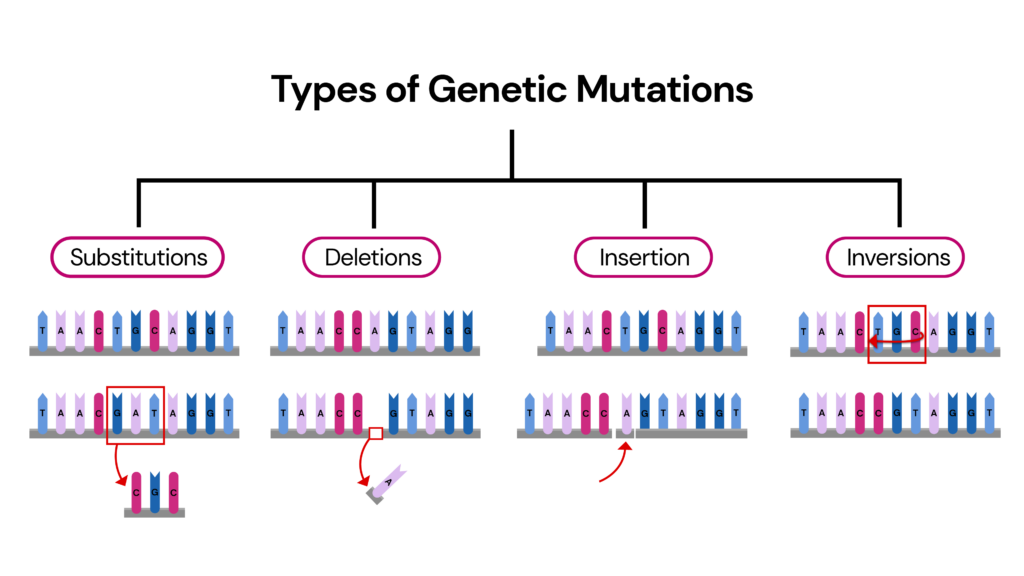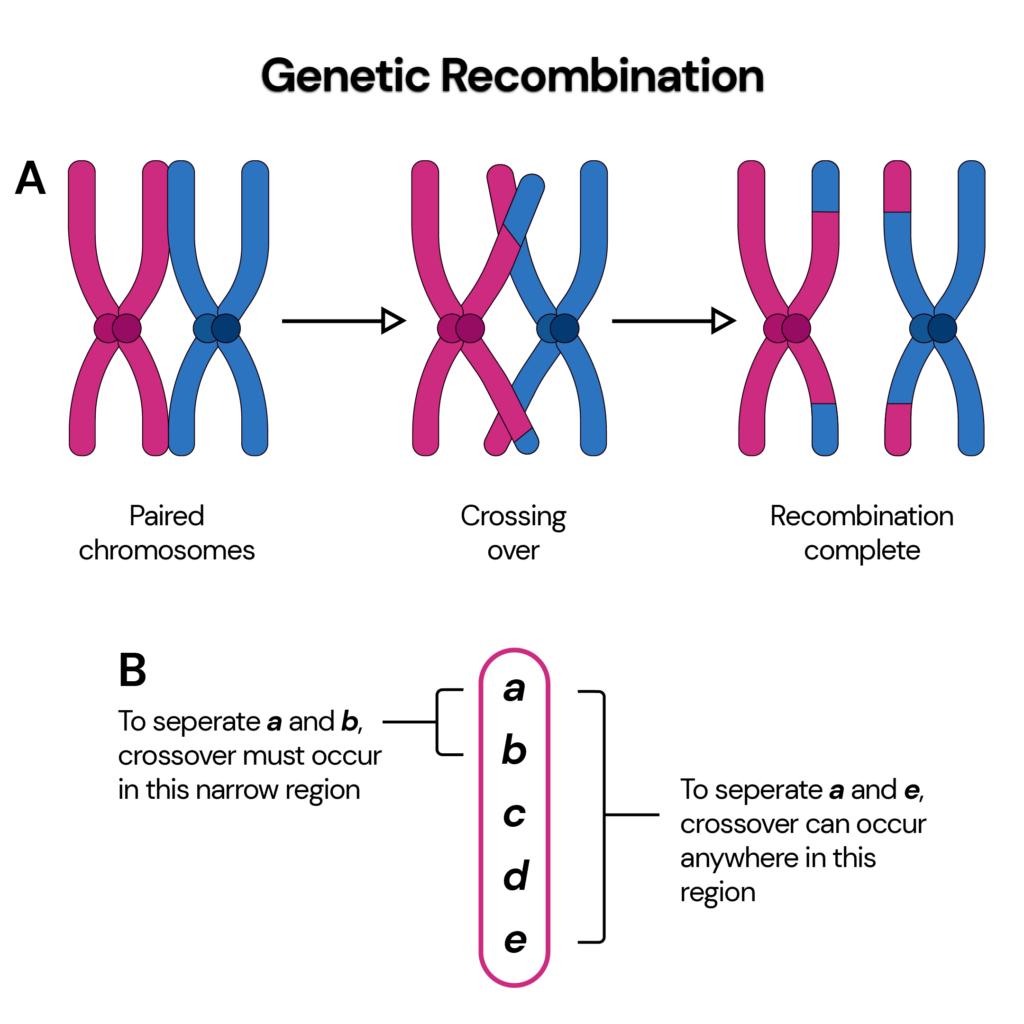Have you ever wondered what makes each of us unique? The answer lies deep within our DNA, the blueprint of life. Genetic variation is the driving force behind our individuality, shaping everything from our appearance to our health. Today, we delve into the fascinating world of genetics to uncover the ultimate source of genetic variations.
Xcode Life analyzes your DNA, focusing specifically on the genetic variations that make you the unique self you are. Watch this video to understand what you can get from Xcode Life's reports.
What Are Genetic Variations?
Genetic variations are permanent changes in the DNA sequence that make up a gene.
These variations are the differences in DNA sequences among different people in the population.
They can occur in the germ cells, the egg and sperm, or the somatic cells (all other cells).
Genetic variations can be passed on from generation to generation only if they occur in the germ cells.
While it was initially believed that all genetic variations cause a disease, it is not so.
They can:
- Not have any effect
- Be beneficial
- Alter the risk (both increase and decrease) of health conditions
- Predispose you to a variety of other things
What Is The Ultimate Source Of Genetic Variation?
Mutations (abnormal changes) and recombination are two major sources of genetic variations.
Mutations
Mutations are said to be the original source of genetic variation.
These are permanent alterations of a DNA sequence.
When there is an error during the DNA replication process that is not corrected by the DNA repair enzymes, they are termed a De novo or a new mutation.
Mutations can be beneficial to the organism or individual, harmful, or even neutral (when they do not affect the health or fitness of the individual).
When mutations occur in the somatic cells, they are called somatic mutations.
These mutations are mostly harmless and bring about local tissue changes like mole development.

Recombination
Besides mutations, the next major source of genetic variation is recombination.
Every individual contains genetic material from both parents. Mixing of genetic material occurs during the recombination process, which shuffles the maternal and paternal DNAs.
This results in the recombination or creation of a new combination of variations in the cells of the individual. A genetic variation arises from this recombination.

Other Causes of Genetic Variations
Other causes of genetic variation are:
- Random mating between two organisms
- Random fertilization
Mosaicism is a type of genetic variation that occurs when an organism is developing but is not present in the parental cells.
As the organism grows from the embryonic stage to adulthood, some cells that arise in the process may have an altered gene while others don’t.
When a proportion of somatic cells have a genetic variant, it gives rise to somatic mosaicism. When this happens with the germ cells, it is called germline mosaicism.
How Do Genetic Variations Impact Human Health?
For an individual to function normally and healthily, every cell in their body must perform its functions properly. The thousands of proteins in the body must be in the right place doing their jobs.
A genetic variation, such as a mutation, may prevent the proteins from doing their job properly.
Genetic variations lead to altered instructions, which may lead to a defective protein or no protein production. If this protein is essential to the body, it may disrupt normal functioning, causing a health condition.
When genetic variations cause a health condition, they are called genetic disorders.
It is essential to understand that genetic variations do not directly cause disease. Instead, the variations alter the gene’s function, which causes a disease.
Let’s take, for example, cystic fibrosis- a well-studied genetic condition.
Every individual has a version of the CFTR gene.
When an individual develops cystic fibrosis, they have a genetic variation in their CFTR gene that causes the disease.
Hand-picked Content For You
Is Gene Therapy A Potential Cure for Cystic Fibrosis?
Are All Genetic Variations Dangerous For Human Health?
Not all genetic variations are harmful or cause genetic disorders.
In fact, a tiny percentage of genetic variations give rise to genetic disorders.
Genetic variations that can cause disorders are often repaired by enzymes even before the gene is expressed, and the altered protein is produced.
Some genetic variations are actually positive in nature.
These favorable genetic variations lead to the formation of proteins that help an individual adapt to their surroundings better.
Why Should I Learn About Genetic Variants?
Even though not all variations are directly disease-causing, many of them alter the risk of developing health conditions like heart disease, hypertension, stroke, type 2 diabetes, etc.
When subjected to triggers like a bad diet or a sedentary lifestyle, those with the "high-risk variant" will be more likely to develop the disease than those with the "normal variant."
Therefore, understanding your genetic makeup can be crucial in preventing, managing, and even treating chronic health conditions.
Summary: The Ultimate Source Of Genetic Variation
- Genetic variations are permanent changes in the DNA sequences that make up a gene.
- Genetic variations can affect germ cells as well as somatic cells.
- Mutations and recombination are the two major sources of genetic variations.
- A small percentage of genetic variations are harmful and cause disorders.
- Few genetic variations may be positive or helpful to the individual.




